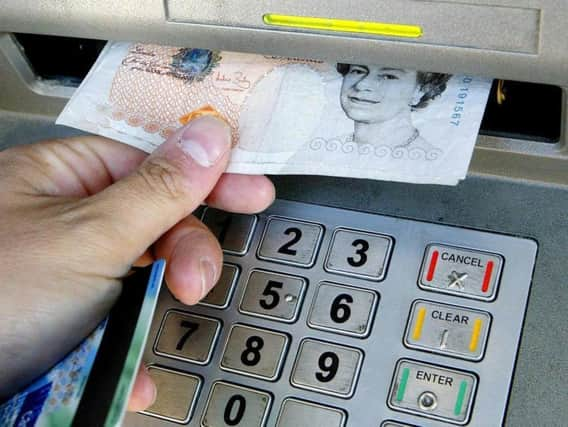Why you must keep tight control of cash flow to ensure you are ready for a scary Halloween


Read more
>Why it pays to be a mindful employer>MPs call for suspension of all loan charge activityIn such times, a lifeboat is required, and we are probably already clinging to it; the lifeboat known as cash. “Cash is King” is a well-known phrase among entrepreneurs, but how true is it?
It was a phrase heavily used during the financial crisis of 2008 and the recession that followed.
Advertisement
Hide AdAdvertisement
Hide AdHolding on to cash nowadays at such low interest rates feels at odds with doing what is best for the business – but at present, it probably will help even those companies with the best cash flow.
There are essentially two kinds of cash flows:
Positive cash flow. Monies coming into the business from sales, accounts receivable, or any other monies due to the business and is more than the amount of the cash leaving your businesses through such expenses as accounts payable, monthly expenses, salaries, and rent.
Negative cash flow. This is the opposite and occurs when your cash expenditure is greater than your incoming cash.
Cash is a physical cushion. It is usually recommended that, at a minimum, you should hold two to three months’ expenses in the bank.
Advertisement
Hide AdAdvertisement
Hide AdIf anything, treading water is a waste of time and takes a lot more energy. Unless you are a lifestyle business, most of us want to grow the business and expand our horizons. However, in times of both growth and uncertainty, it is best to avoid common mistakes. Planning is crucial. As Winston Churchill once said, “he who fails to plan, plans to fail”.
Planning properly, for example investments in machinery, is vital. I recently spoke to a local business which wanted to invest in new machinery from Germany. They had to place the order to secure the exchange rate on that day. The board discussed whether they should place the order on the June 22, 2016 or June 24, 2016 (the referendum took place on June 23, 2016).
They chose the latter which cost them in excess of €500,000 as sterling’s value fell. It was a toss of a coin but at least they made a conscious decision and planned and understood the broader impact on the business’s cash flow. Some things to consider are:
1: How much cash do you have on hand?
2: How many clients do you have and what percentage of your revenue do your three biggest clients contribute? What if you lost one of these clients or had payment withheld due to a dispute; what effect would this have on your cash flow?
Advertisement
Hide AdAdvertisement
Hide Ad3: How easily can you get access to finance? This is an important question as it can inject cash that will help stimulate growth.
The lack of cash is one of the key reasons businesses fail.Achieving a positive cash flow needs focus. Equally, one should not get confused with profit equating to cashflow.
Growing a business does not just mean increase in sales. As we saw from the example above, it often means streamlining processes and investing in new equipment. A growing business inevitably experiences strain.
Things businesses need to remind themselves to consider to generate a positive cash flow:
Advertisement
Hide AdAdvertisement
Hide Ad1: Getting paid on time. Getting bills paid quickly and on time. I recently spoke to a business that offers a 10 per cent discount off their invoices when they are paid within 7 days of the invoice date. This may not be doable to all business, but incentives should be considered.
2: Tightening credit requirements – research the business you are extending credit terms to. Do not be afraid to push back and “lose” the order. A key question is ‘is their business growing or faltering?’ Are they having cash-flow problems?
3: Tracking your cash flow. Get monthly reports and have a projected cashflow.
To get control of your cash flow you need to ask two questions:
1: What is my cash balance now?
2: What do I expect my cash balance to be in six months?
If you are unable to answer these questions – strap in for a bumpy ride.
Rashmi Dube is the founder of Legatus Law